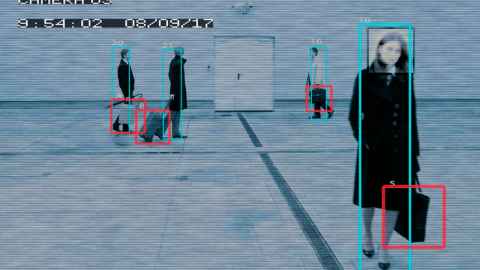Beware surveillance-creep
19 October 2022
Opinion: The intimidatory police tactic of photographing individuals creates a them and us mentality, argues Gehan Gunasekara.

I recently watched the New Zealand film Muru, an interpretation of the events surrounding the 2007 police raids in the Urewera. Although the version of events depicted in the film is not endorsed by the police, the more important point to emerge is that in matters of law and justice, perception is just as important as reality. Much of the evidence obtained in connection with the 2007 raids was later found to have been obtained illegally by police, resulting in much distrust.
Against this backdrop, I was pleased to see the publication, last month, of the joint report of the IPCA (police watchdog) and Privacy Commissioner into police conduct involving the photographing of members of the public, especially youth.
Not only was the report critical of police practices which were found to be unlawful, but it revealed that the Privacy Commissioner had issued his second ever compliance notice against the New Zealand Police, requiring police to ameliorate certain conduct. This, I believed, would demonstrate New Zealand's commitment to the rule of law and confound conspiracy theorists and others who might otherwise believe that we live in a surveillance society.
My confidence turned out to have been misplaced in the light of Minister of Police Chris Hipkins’ recent comments indicating the Government's intention to now renege on promises made to comply with the joint report's recommendations and, instead, to consider legislation to legitimize the types of conduct that had been engaged in by police. This is deeply concerning, given some of the findings of the joint report.
For example, it found that many members of the police believed that the Privacy Act did not apply to them. The privacy legislation has been in place since 1993 and ignorance of the law is no excuse.
The police are an agency covered by the Act and images of identifiable individuals constitute personal information, even when taken in public places. Law enforcement exceptions to the Privacy Act likewise require a reasonable belief that an offence has been or will be committed as opposed to a mere possibility of one which would enable anyone’s picture to be taken. Police statutory powers, such as search, and entry do not apply to such general surveillance.
Minister Hipkins claims that police image taking is part of necessary intelligence ... intelligence though, must be carried out intelligently to be useful.
Moreover, Police had claimed much of their conduct was sanctioned by the consent of those who were its target. The joint report, on the other hand, found such consent to be invalid given the power imbalance between the Police and the young people involved. A further important point that appears to have been missed is that consent under the Privacy Act does not allow many of its rules (known as privacy principles) to be disregarded. Thus, the legitimate need, transparency, data security, access and correction rights and length of retention principles may not be overridden even with the consent of those involved.
Minister Hipkins claims that police image taking is part of necessary intelligence, and he is no doubt correct. Intelligence though, must be carried out intelligently to be useful. In one instance documented, Māori rangatahi not fitting the description of alleged offenders were photographed whilst in another instance that was not discounted, rangatahi were allegedly photographed whilst Pākehā youth in the vicinity were not: the offenders eventually turning out to be Pākehā, not Māori.
The report also raised concerns about the myriad devices on which the images were captured, the security of the data on them and the opaqueness as to how they linked with other Police databases.
There is an inevitable tendency to rely on technology as a panacea for social ills. Technology, however, is no substitute for human relationship building and empathy. The intimidatory tactic of photographing individuals is likely to have the opposite effect and instead create a “them” and “us” mentality. Policing by consent must involve not just the individuals but their whānau.
Civil society groups, including the Privacy Foundation, are likely to closely scrutinise any legislation paring back the recommendations of the joint report and insist that it requires transparency and accountability on the part of police.
Gehan Gunasekara is an associate professor in commercial law at the University of Auckland Business School and is convenor of the Surveillance Working Group of the Privacy Foundation.
This article reflects the opinion of the author and not necessarily the views of Waipapa Taumata Rau University of Auckland.
This article was first published on Newsroom, Surveillance creep undermines policing by consent, 19 October 2022.
Media contact
Margo White I Media adviser
Mob 021 926 408
Email margo.white@auckland.ac.nz